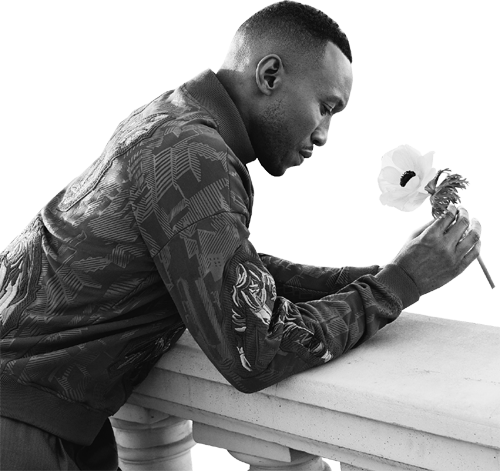CHALLENGING THE NORMS of MASCULINITY
By XU JUNQIAN and CAO CHEN in Shanghai (CHINA DAILY) Updated: 2020-01-01 00:00For the past few years, award-winning Chinese designer Chen Xuzhi has been flying the Chinese flag high on the global fashion scene, wowing audiences and critics with his exquisite womenswear that is characterized by fringes, ruffles as well as soft and light textiles.
Earlier this year, these signature elements were incorporated into his new menswear collection which features items such as silk hoodies and pleated satin suits. Many of these new offerings were also popular with his female customers.
"I was inspired to introduce a menswear brand because I found male customers coming to the stores and secretly trying out our women's wear as they are attracted by the color, fabrics and silhouettes," said Chen, a graduate of Central Saint Martins in London, where he started his womenswear brand in 2015.
"The original idea was to create something for someone who is confident of his masculinity and comfortable with being soft, romantic and vulnerable."
The 27-year-old, who described himself as "not that masculine in a traditional sense", said that he is happy to embrace his softer, more sensitive side.
"Men can like beautiful things, too. And if that is in conflict with the traditional concept of masculinity, then maybe it's time to change the tradition," he added.
According to market research company Euromonitor, social media has resulted in men becoming more concerned with their appearances-something that was typically associated with women-and this has in turn driven sales of menswear in recent years. In fact, the growth in the sales of menswear has consistently outpaced womenswear since 2016 and this trend is expected to continue till at least 2021.
Euromonitor also noted that men are spending more on apparel and footwear than ever before, and estimated that menswear will contribute close to $40 billion in sales to the global apparel market by the end of 2019.
Fashion labels around the world have been quick to capitalize on the trend. In 2016, US fashion designer Emily Bode founded Bode, which specializes in upcycling vintage quilts, linens and tablecloths into menswear with a feminine touch. In Sept 2017, French fashion house Isabel Marant, which had previously only sold womenswear, debuted its men's collection during Paris Fashion Week.
Apparel brands aren't the only ones jumping on the bandwagon. In August, US luxury jeweler Tiffany& Co rolled out its maiden men's collection which comprises 100 items ranging from rings to bracelets and necklaces.
In an interview with the Associated Press, Reed Krakoff, the brand's chief artistic director who developed the collection, said that the motivation behind this collection was that "men all over the world are wearing jewelry and more accessories as part of a wardrobe".
Shi Yongqiang, a former media publisher who once helped to localize some of the most famous Western fashion magazines in China, argued that too much emphasis has been placed on what men should or should not wear, while the core values of manhood have been left neglected.
"We are still living in a world where most of the important decisions are made by men. Before we can change that completely, I think it's important that boys are properly taught how to make these decisions with honor, integrity and a sense of duty," said Shi.
"These characteristics are essential to both men and women throughout history. But with the changing roles of females in society, there are new layers of meanings to be passed on to the boys before they become men."
Driven by this belief, Shi sent his son to The McCallie School, an all-male college preparatory school based in the US state of Tennessee. Lee Burns, the headmaster of The McCallie School who was in Shanghai recently to meet with potential students and their parents, also weighed in on this matter.
"Healthy manhood is not limited to certain activities, interests, styles or colors, nor outer achievements like grades, salaries and achievements in their professions," he said, noting that strength of character and a sense of purpose should form the fundamental base for boys to develop their identity and confidence.
"Boys should be taught that being a strong man means they can ask for help and be authentic in talking about their feelings and emotions. They need to understand the importance of treating women with respect, equality and dignity," he added.
 
 Model dressed in pieces from the menswear collection by Chen Xuzhi. The clothes features fabric, colors and designs which are typical in womenswear. CHINA DAILY
Model dressed in pieces from the menswear collection by Chen Xuzhi. The clothes features fabric, colors and designs which are typical in womenswear. CHINA DAILY
 
 
 Model dressed in pieces from the menswear collection by Chen Xuzhi. The clothes features fabric, colors and designs which are typical in womenswear. CHINA DAILY
Model dressed in pieces from the menswear collection by Chen Xuzhi. The clothes features fabric, colors and designs which are typical in womenswear. CHINA DAILY
 
 
 Green Book actor Mahershala Ali partners with Zegna to showcase his view of 21st century masculinity. CHINA DAILY
Green Book actor Mahershala Ali partners with Zegna to showcase his view of 21st century masculinity. CHINA DAILY
 
 
 
 
- 'Cooperation is complementary'
- Worldwide manhunt nets 50th fugitive
- China-Japan meet seeks cooperation
- Agency ensuring natural gas supply
- Global manhunt sees China catch its 50th fugitive
- Call for 'Red Boat Spirit' a noble goal, official says
- China 'open to world' of foreign talent
- Free trade studies agreed on as Li meets with Canadian PM Trudeau
- Emojis on austerity rules from top anti-graft authority go viral
- Xi: All aboard internet express











